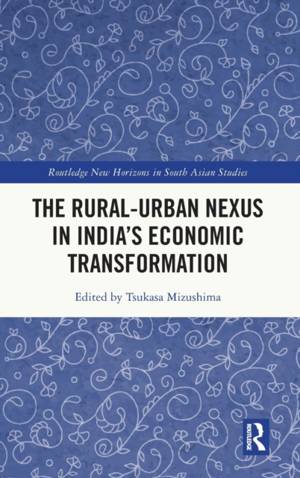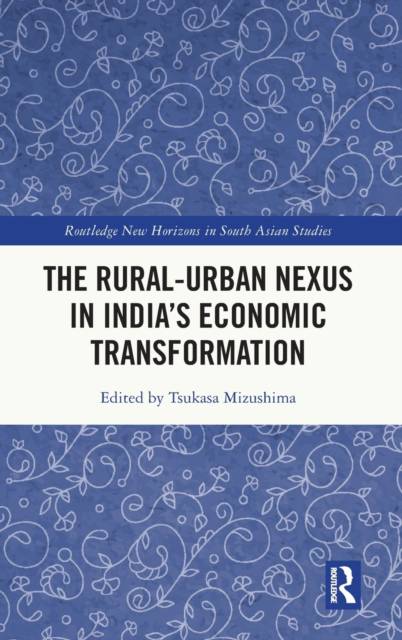
- Afhalen na 1 uur in een winkel met voorraad
- In januari gratis thuislevering in België
- Ruim aanbod met 7 miljoen producten
- Afhalen na 1 uur in een winkel met voorraad
- In januari gratis thuislevering in België
- Ruim aanbod met 7 miljoen producten
The Rural-Urban Nexus in India's Economic Transformation
Omschrijving
This book describes and analyzes the transformation of Indian economy taking into account historical changes and present dynamics of the rural-urban nexus.
India has recently experienced a period as a high-performing economy, with the great improvement of indices of human development, including literacy rates, life expectancy, child mortality rates and others. In contrast to this bright outlook, features such as the retarded growth of women's average height, the noticeable gap between male and female population, the overwhelming proportion of informal employment in the manufacturing sector, or increasing pollution overshadow India's future, in some cases pose a threat to lifestyle and environment.
Examining the rural-urban nexus where the new transformative dynamics of Indian socio-economy is most conspicuous, the contributors to this book shed light on the actual changes taking place at the bottom of Indian society through regional comparisons and spatial differentiation. The book offers unique perspectives on the topic produced mostly by Japanese scholars, including analysis of original data, that have hitherto been unavailable and inaccessible to an international audience.
As the first book published on the rural-urban nexus in India, this book will be of interest to researchers studying South Asian History, Economics, Politics, Geography, Sociology and Anthropology, Development Studies and Economic History.
Specificaties
Betrokkenen
- Uitgeverij:
Inhoud
- Aantal bladzijden:
- 240
- Taal:
- Engels
- Reeks:
Eigenschappen
- Productcode (EAN):
- 9781032318912
- Verschijningsdatum:
- 15/12/2022
- Uitvoering:
- Hardcover
- Formaat:
- Genaaid
- Afmetingen:
- 156 mm x 234 mm
- Gewicht:
- 539 g

Alleen bij Standaard Boekhandel
Beoordelingen
We publiceren alleen reviews die voldoen aan de voorwaarden voor reviews. Bekijk onze voorwaarden voor reviews.








